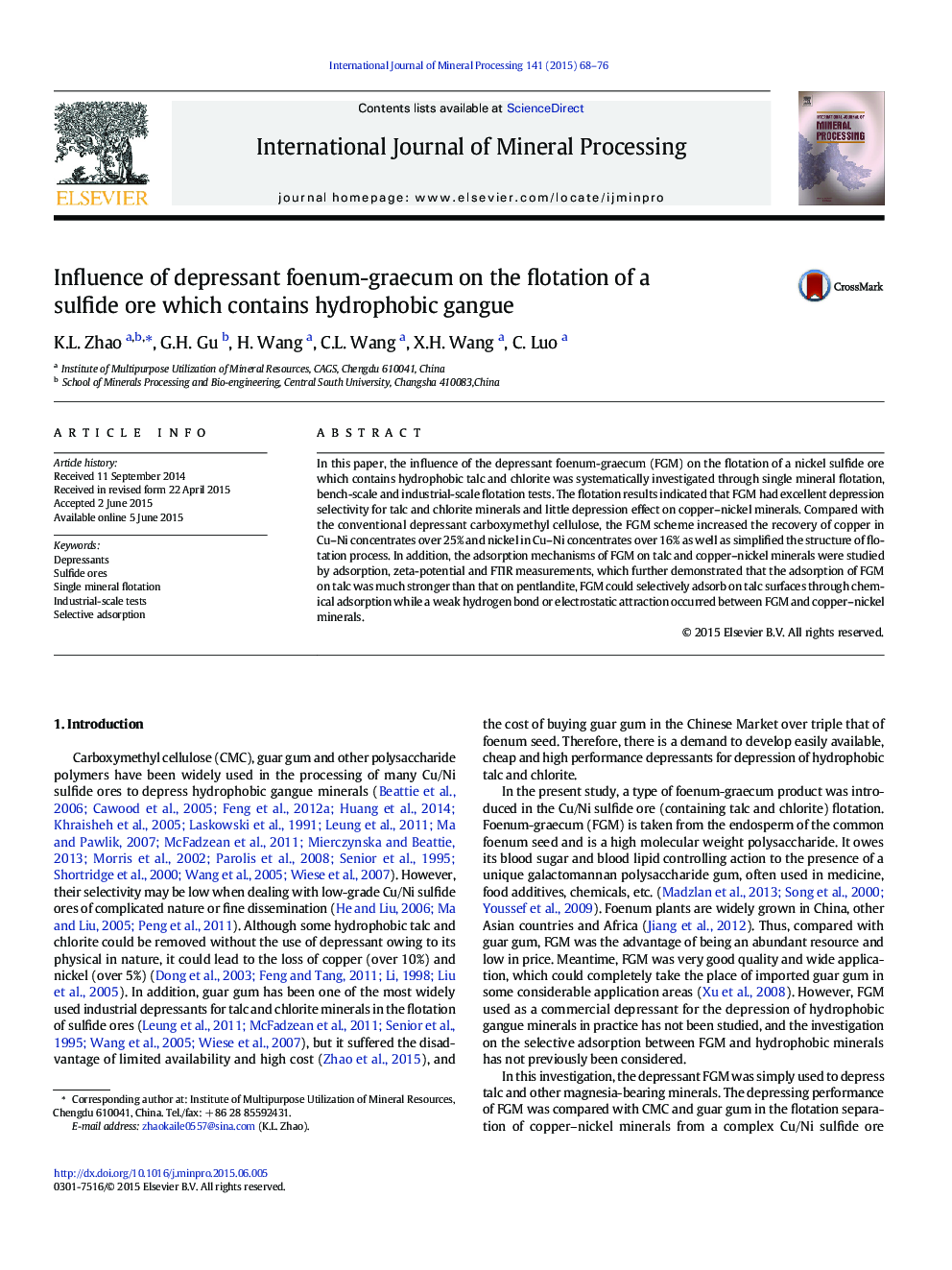| Article ID | Journal | Published Year | Pages | File Type |
|---|---|---|---|---|
| 213866 | International Journal of Mineral Processing | 2015 | 9 Pages |
•The depressant foenum-graecum (FGM) was used to depress easy-floating minerals.•Adsorption of FGM on talc is much stronger than that on pentlandite.•FGM could effectively depress talc and do not interfere with pentlandite flotation.•The use of FGM considerably obtained superior Ni and Cu recovery.
In this paper, the influence of the depressant foenum-graecum (FGM) on the flotation of a nickel sulfide ore which contains hydrophobic talc and chlorite was systematically investigated through single mineral flotation, bench-scale and industrial-scale flotation tests. The flotation results indicated that FGM had excellent depression selectivity for talc and chlorite minerals and little depression effect on copper–nickel minerals. Compared with the conventional depressant carboxymethyl cellulose, the FGM scheme increased the recovery of copper in Cu–Ni concentrates over 25% and nickel in Cu–Ni concentrates over 16% as well as simplified the structure of flotation process. In addition, the adsorption mechanisms of FGM on talc and copper–nickel minerals were studied by adsorption, zeta-potential and FTIR measurements, which further demonstrated that the adsorption of FGM on talc was much stronger than that on pentlandite, FGM could selectively adsorb on talc surfaces through chemical adsorption while a weak hydrogen bond or electrostatic attraction occurred between FGM and copper–nickel minerals.
Graphical abstractFigure optionsDownload full-size imageDownload as PowerPoint slide
